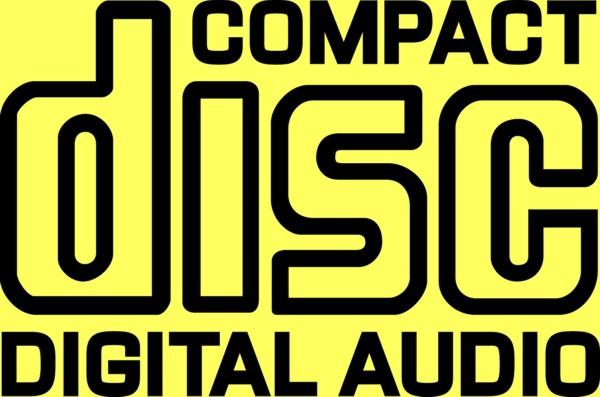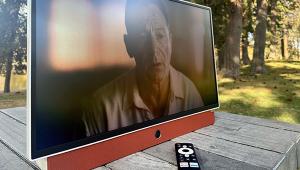If you go looking for albums in Amazon, you will find now that CDs are often less expensive by three to five dollars than the mp3 versions, and redbook or hi res downloads are very often not available. I say long live CDs! They are a bargain, even if you rip 'em and toss 'em.
Living with the Compact Disc

My relationship with the CD got off to a rocky start. When I brought home my first CD player, along with a new pair of speakers, set them up in my then-new apartment, and played a CD for a friend, he said: "Wow, your system really sounds great now." Except that it actually didn't sound as good as my old turntable playing in my old apartment. It sounded hard and clattery. But the CD format wasn't entirely to blame. The new speakers were a bad idea—and by the way, the fact that I bought them after reading a review makes me a more careful reviewer. It also took awhile to figure out that my new, larger living room needed some informal acoustic treatment. Time, clutter, experimentation, better speakers, and better amps made the room and the system sound better. Over the years, as my system has improved, my relationship with the CD has slowly come into focus.
I bought the "perfect sound forever" slogan, at least for awhile, and busily built my CD collection at $15 a pop (in Reagan-era dollars). But I wasn't affluent enough to replace every album I loved overnight, so I hedged my bets and kept my turntable connected to the system. I now recognize this as a blessing—it halted the liquidation of my LP library, except for a few things I bitterly regret letting go, and have replaced at sometimes great expense. Did my new CDs sound better than my old LPs? Here's an answer that will make everyone hate me: Depends.
As I learned when interviewing mastering engineers for a story about CD mastering, a lot depends on the original recording, the surviving source material, and the mastering job. Some of my new CDs sounded better than the LPs. Some fell short. Nowadays, I recognize that mastering equipment has steadily improved and that recent CD remasterings have the potential to sound better than older ones. But there's no hard and fast rule. LPs are also the outcomes of recordings, source material, and mastering jobs, with the additional wild cards of stampers and whatever Opie was smoking at the pressing plant that day.
Did my new CDs sound better than my old LPs? Here's an answer that will make everyone hate me: Depends.
Just as your perception of an LP hinges on a turntable, cartridge, and record-cleaning etiquette, your perception of a CD hinges on what you use for a DAC. Getting into external DACs moved my perception of the CD format to the next level. The CD made its debut during Ronald Reagan's first term, I bought my first player when he was into his second term, and replaced it with a better-sounding one when the first President Bush was taking office. Bill Clinton was running for president by the time I learned that a DAC (digital-to-analog converter to newbies) can be transformative. I wrote a story for Rolling Stone comparing three DACs by Theta, Meridian, and Enlightened Audio Designs. I was fascinated that each had a different personality. I ended up buying the Theta and for years it partnered in my rig with a Rotel CD player used as a transport. Nowadays the transport in my main system is a Blu-ray player and my DAC is the one built into my surround receiver. The old Rotel feeds the DAC in my Peachtree desktop amp.I use CDs somewhat differently than I used to. I still pop a CD into the drawer once in a while. But any CD eligible for repeat listening gets fed into the media PC for lossless ripping. I'll then listen to it via whatever USB DAC is connected to the PC (I have a whole collection of them). Or I'll bump it to an iPad for streaming to the surround receiver or whatever other wireless-capable product I'm reviewing. Last week I bumped several recently bought CDs to an Astell & Kern AK380 music player (price: $3,499!) and listened with a new pair of Sennheiser HD 598 headphones. This was casual getting-to-know-you listening, not formal demoing. Life can be sweet.
Now let's assume you own both the perfect analog rig, the perfect DAC, and that they're both playing best-case software, with which nothing has gone wrong, made from the same original master. Which sounds better? The wisest answer I've ever heard came from Michael Hobson of Classic Records, back in the days when he was selling audio as Hobson Ultimate Sound. Instead of saying vinyl "sounds better," he said it "feels different." This suggests that the question was wrongheaded in the first place. In lieu of "sounds," substitute "feels." In lieu of "better," substitute "different." Think that one through and you'll find the ultimate answer to the CD vs. LP question.
Audio Editor Mark Fleischmann is the author of Practical Home Theater: A Guide to Video and Audio Systems, now available in both print and Kindle editions.
- Log in or register to post comments


I agree with BradleyP. You can find a lot of great, cheap CD titles nowadays on Amazon and other retailers, and you can still find tons of SACDs at great prices (as long as you have the player that will handle them), too, sometimes between $10 - $12. When CDs first appeared, a lot of them sounded harsh, but that wasn't due to the format, but to the mastering and engineering that hadn't yet really adjusted to the new format. But many of the CDs now sound amazing, especially the ones that were mastered from the same tapes used for the SACD and DVD-Audio versions, like the CD remasters of the Rolling Stones albums. And the Steely Dan catalog sounds incredible, especially "Katy Lied" and "Gaucho".
I ripped every CD I own - and others I borrowed - to .wav format using dbpoweramp to my PC, and I stream to my Onkyo network receiver. It is an absolute joy, and a long-time dream, to have every piece of music I love, both popular and classical, at my fingertips to play anytime I want with a touch of my universal remote control. And I don't care what anyone says, listening to Bob Dylan's "Highway 61 Revisited" streamed to my home theater system as a .wav file and processed in Dolby Pro-Logic IIx is an amazing experience. I know that there is a need for hi-res, multi-channel music downloads, but the Dolby processing on all kinds of music can sound pretty damned phenomenal.

But any CD eligible for repeat listening gets fed into the media PC for lossless ripping. I'll then listen to it via whatever USB DAC is connected to the PC
newbe here. what is losses ripping and USB DACs thanks!

The CD remains the most acoustically accurate sound source, across all genres. Frequency and THD analyses show the CD offering inaudible distortion. LPs are intended to sustain sales of distortion - generating turntables and cartridges along with overpriced LPs, which soon develop clicks, pops and scratches.. Search the Web for comparisons of LP and CD frequency scans for accuracy. Those of us who listen to music composed from 1100AD to the modern 'classical' periods, welcomed and treasure our growing CD collections.










































